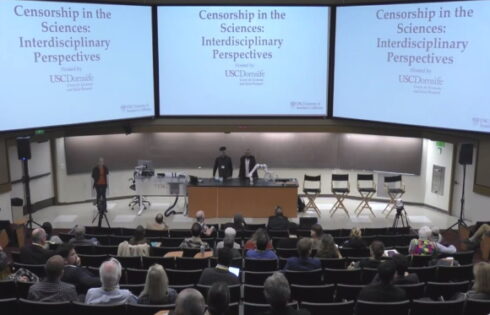
Putting up to 23,000 laboratory mice to death during the COVID-19 shutdown cost Rutgers University over $1 million, according to The Daily Targum.
The mice, which resided at the Rutgers Biological and Health Science laboratories, were euthanized in early 2020, as the campus closed due to the coronavirus pandemic.
On August 28 of 2020, Rutgers applied for a COVID-19 aid grant from the State of New Jersey. In the application document, the school itemized $30.8 million in pandemic-related losses that it was asking the state to reimburse.
Among these losses were $1.15 million in losses associated with euthanizing mice.
“Loss of research animals required for student/postdoc training,” the request reads. “RBHS was forced to eliminate 4,600 cages of mice, each containing an average of five mice. Assuming an average cost of $50/mice.”
It is unclear whether the loss is associated with the cost of killing and disposing of the mice or whether it reflects the value of the mice lost as an asset.
Initially the school’s Office of Research denied any mice were euthanized.
“In line with peer research universities across the nation, we prepared for multiple contingencies as part of our emergency pandemic response plan,” the office wrote to the Targum.
“This planning included a worse-case scenario that may have led to the euthanization of animals should the food and other critical supply chains have been severely impacted by the pandemic. Fortunately, there were no such disruptions and we never reached this stage of the emergency plan.”
But a Rutgers spokesperson later confirmed that mice had been euthanized and the school would be receiving $1.15 million in taxpayer-funded aid to compensate for the loss.
“During the ramp-down of research last year, principal investigators were asked to scale down or stop research not deemed critical,” Rutgers spokesperson Dory Devlin told the paper in an email.
”Mitigating measures, including halting breeding and not starting new studies, as stated before, significantly reduced any need for euthanization. Unfortunately, ending studies early can lead to euthanization. When these decisions are made by a PI …, Rutgers and its researchers fully comply with all requirements of the Animal Welfare Act, Public Health Service Policy on Humane Care and Use of Laboratory Animals.”
The mass euthanizations have been criticized by the People for the Ethical Treatment of Animals, which has maintained an ongoing series of articles documenting schools where animals are being exterminated.
“PETA is questioning why any of these animals on NIH-funded protocols are being bought, bred, trapped, or experimented on in the first place since they’re now so easily disposed of and since experiments are now being ended or delayed,” the group says on its website, adding:
“Universities cannot legitimately argue that all animals on National Institutes of Health-funded protocols are vital to medical research—and that the protocols are indeed worthy of NIH funding—while simultaneously classifying many of the animals as unnecessary and then killing them during the COVID-19 pandemic.”
PETA has expressed extra concern for the mental health of a notable mollusk:
“Mussels exhibit individual differences in behavior, and it’s believed that they may know when other mussels have been killed. That’s because in the presence of a large number of broken mussel shells, they grow thicker shells for protection.”
The group has documented a number of schools they believe have engaged in mass euthanization of lab animals, including Johns Hopkins University, Stanford University, the University of California–Berkeley, the University of Washington, and the University of Michigan.
Read more here.
ALERT: Check out our new Campus Cancel Culture Database!
Like The College Fix on Facebook / Follow us on Twitter






Please join the conversation about our stories on Facebook, Twitter, Instagram, Reddit, MeWe, Rumble, Gab, Minds and Gettr.